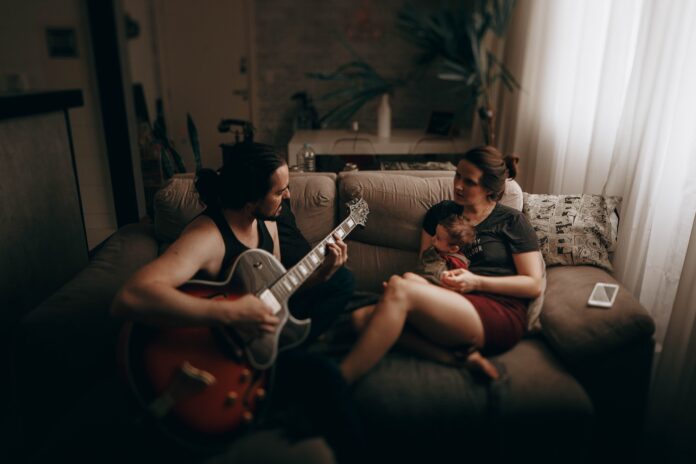Listening to live music is an important social and cultural tradition around the world — but why is it that so many of us find live music more powerful than recorded performances?
A team of researchers from the University of Toronto investigated this question from the perspective of babies, finding that even infants as young as 6 months old prefer live music over recordings.
The study was co-authored by Laura Cirelli, assistant professor in the Department of Psychology at U of T’s Scarborough campus and director of the TEMPO Lab, and published in Psychology of Aesthetics, Creativity and the Arts.
Scientists have long known that music has important benefits for babies’ growth and development, but when it comes to live music versus recorded performances, do babies have a preference? This is the question the team behind the study set out to answer.
To do this, they monitored 120 babies between the ages of 6 and 14 months while they watched a children’s opera concert. Roughly half of the babies watched the performance live in a concert hall at McMaster University, while the other half watched a recording. To make sure that the study groups were comparable, the researchers recorded the performance in such a way that the performers were at the same size, distance, and volume as they were in the live version.
In both cases, the babies were equipped with heart monitors, as well as tablets which were used to track where the babies were looking.
The team found that the babies who were present at the live performance tended to be more engaged than those watching the recording. In particular, babies at the live performance paid attention to 72% of the show, while babies watching from home only paid attention for 54%. Those at the live performance also paid attention for longer uninterrupted periods of time than those at home.
Through analyzing data from the heart monitors, the researchers also found that the heart rates of babies watching live synchronized throughout the performance.
“Their heart rates were speeding up and slowing down in a similar fashion to other babies watching the show,” Cirelli explained in a news release.
“Those babies were dealing with all these distractions in the concert hall, but still had these uninterrupted bursts of attention.”
The researchers believe that the social experience of live performances is part of what kept the babies so engaged. In addition to the benefits provided by the music itself, the babies attending live also experienced interactions with the musicians and other concert-goers.
“We consistently find that music can be a highly social and emotional context within which infants can foster connections to their caregivers, other family members and even new acquaintances,” Cirelli said.
“This audience study shows that even in a community context, infants are engaging with the music and connecting to their fellow audience members.”
While the benefits of live performances are clear, the researchers are now investigating whether babies can be equally engaged while attending Zoom-based live performances. Baby-friendly concerts are not always accessible for parents — especially those living outside of big cities — but the hope is that virtual live performances will offer similar benefits.








































